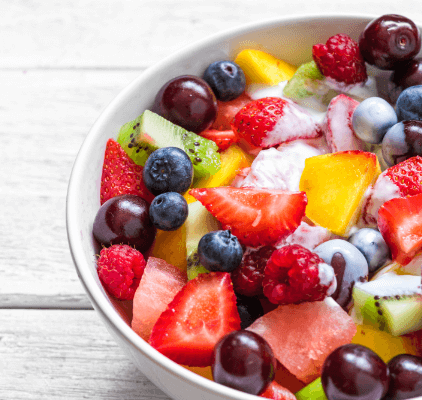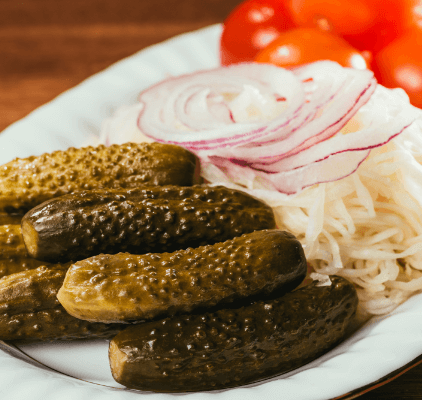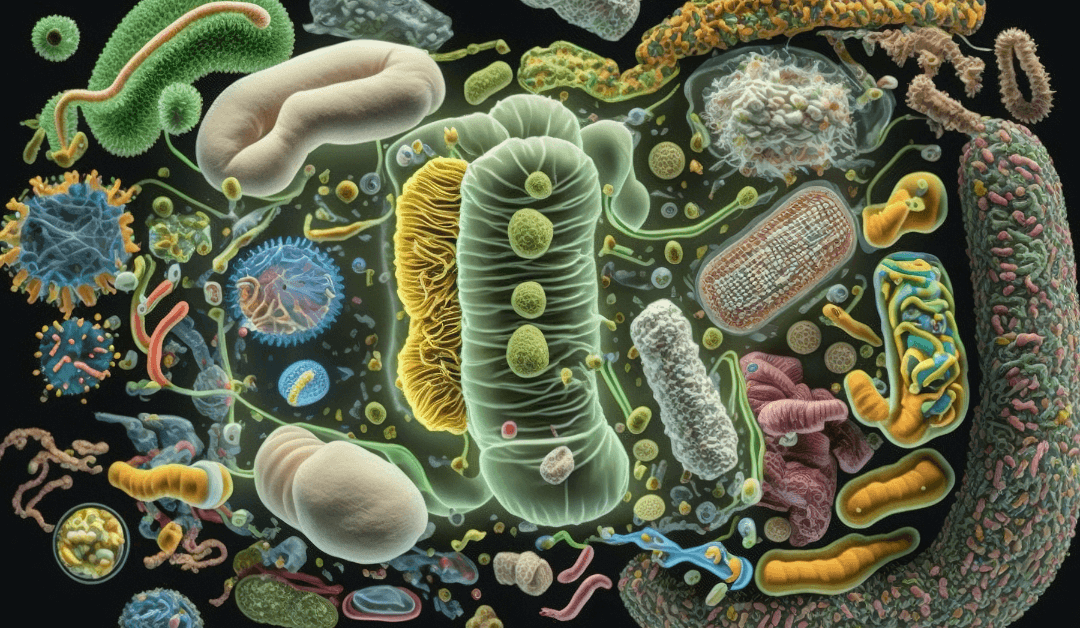Microbiome, probiotics, prebiotics and gut bacteria are terms you have probably heard before. If you wondered what exactly they mean, I’ve got you covered. Here’s what your microbiome is and why it matters.
Gut bacteria
A microbiome is a community of microorganisms living together in the same place. Your microbiome is trillions of bacteria, fungi, parasites and even viruses living in your small and large intestines. Every one of us has a microbiome that’s unique to us because the exact composition depends on our DNA, but also on the bacteria we were exposed to during birth, our environment and our lifestyle.
In a healthy person, good and slightly less good microorganisms live together in balance. They break down food for us, produce vitamins and help our immune system. Your microbiome is not fixed. Instead, it changes if your environment and/or the food you eat change because you do not just eat for yourself. You also always feed your gut.
Prebiotics
Prebiotics are foods that feed the kinds of bacteria you want to have a lot of in your intestines. Bacteria are tiny one-celled organisms that reproduce fast. The more food you provide for one type of bacteria, the more they reproduce.
It also means that eating unhealthy food helps unhealthy microbes multiply. Too much unhealthy food tips the balance between good and less good bacteria.

Indigestible fibre is a prebiotic. You find it in whole grains, beans, unprocessed vegetables and fruits. Other prebiotic foods include raw garlic and onion, leeks, asparagus, bananas and seaweed.
Probiotics

Probiotics are foods or supplements that contain the actual live microbes you want in your gut. When you change your diet, the good kind of microbes will multiply by itself. Adding probiotic foods to your diet speeds up the change.
Kefir, pickled vegetables, tempeh, miso, kimchi and sauerkraut are examples for probiotics. Another one is yoghurt but only if it contains live active cultures (that’s the bacteria).
Changing diets
The microbiome in our body keeps us healthy. It regulates our blood sugar, influences our emotional states and even produces neurotransmitters to talk to our brains. It matters a lot. If you want to take better care of your microbiome, change gradually.
Introduce more unprocessed fruit and vegetables into your diet. Then work your way up to dishes with healthy carbs and indigestible fibres. A slow change gives your microbiome time to adapt and reduces gas and bloating.
Time to feed the gut. Why not start with a piece of fresh fruit today? A banana or an apple. Combine them with a glass of kefir and just like that you’re already on your way to a healthier life.
The Dodo Munches cannot and does not contain medical/health advice. The information is provided for general informational and educational purposes only and is not a substitute for professional advice. Please read the full disclaimer here.

